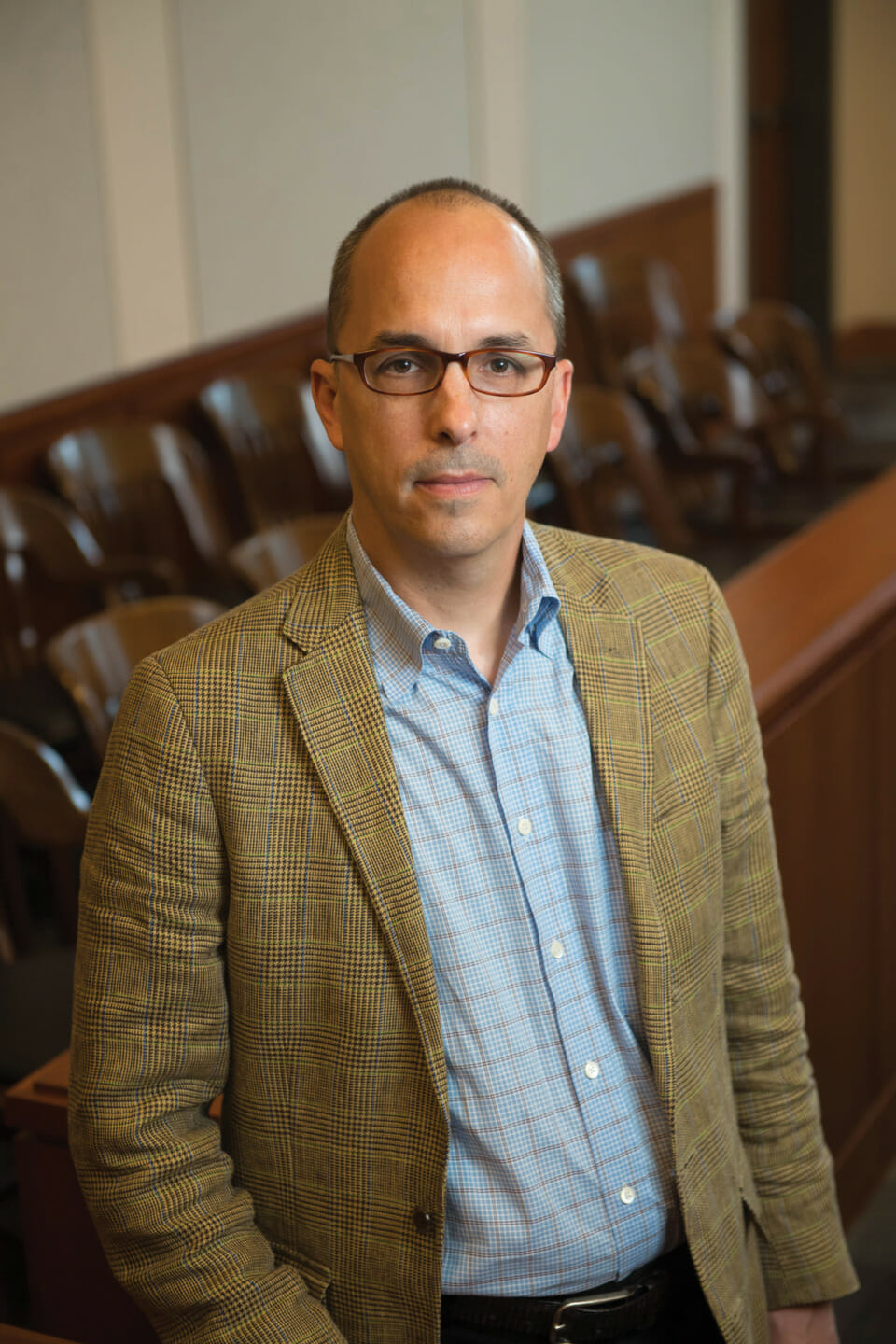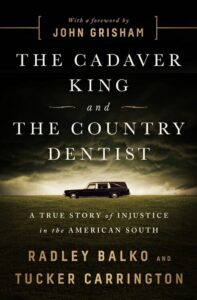
“The Cadaver King and the Country Dentist: A True Story of Injustice in the American South.” By Radley Balko and Tucker Carrington. Public Affairs/Hachette. 391 pages. $28.00.
Editor’s note: Radley Balko and Tucker Carrington will read from and sign copies of their book at 5 p.m., Tuesday, Feb. 27, at Off Square Books in Oxford.
In a scathing foreword, John Grisham sums up this exposé of courtroom chicanery and doubtful evidence:
“This book tells the story of two of the most ambitious and daring experts ever allowed in a courtroom. One was a controversial forensic pathologist who once boasted of performing over two thousand autopsies in a single year. The other, his sidekick, was a small-town dentist who brazenly and without formal training or study assumed the role of an expert in many other fields, such as ballistics, gunshot reconstruction, “tool mark” patterns, and the analysis not only of teeth and bite marks but wound patterns, bruises, and fingernail scratches. Together, they tag-teamed their way through rape and murder trials throughout Mississippi and Louisiana, accumulating an impressive string of convictions, several of which have now been overturned. Some are still being litigated. Many others, sadly, seem destined to stand.”
 The cadaver king of the title is pathologist Steven Hayne, a medical examiner who moved to Mississippi in the mid-1980s. He came to dominate the field of forensic examination in the state. Hayne proved himself intelligent and unshakable, but his own claims called his work into question. His testimony that he had performed more than two thousand autopsies in some years seems hard to credit (particularly when worked out to a daily level). It is equally an admission that he performed a volume of work that exceeded eightfold the number of autopsies recommended by the National Association of Medical Examiners.
The cadaver king of the title is pathologist Steven Hayne, a medical examiner who moved to Mississippi in the mid-1980s. He came to dominate the field of forensic examination in the state. Hayne proved himself intelligent and unshakable, but his own claims called his work into question. His testimony that he had performed more than two thousand autopsies in some years seems hard to credit (particularly when worked out to a daily level). It is equally an admission that he performed a volume of work that exceeded eightfold the number of autopsies recommended by the National Association of Medical Examiners.
The country dentist is Michael West, a dentist practicing in Hattiesburg. West earned a reputation for analysis of bite mark evidence, which he claimed he could interpret with sufficient accuracy—even weeks after an assault—to match a bite mark to a given defendant’s teeth.
Over some 30 years, Hayne and West were part of the fabric of Mississippi criminal justice. Their story is told by Radley Balko, a newsman with the Washington Post, and Carrington Tucker, a career defense lawyer who now heads the George C. Cochran Innocence Project at the University of Mississippi School of Law.

Balko and Carrington focus on two murder cases from Noxubee County, from 1990 and 1992. These were sad, tragic matters. In each case, a poor pre-school girl was carried out of a home where she was sleeping, sexually assaulted, strangled, and thrown into a body of water. In each case, Hayne’s testimony on the cause of death opened the door for the prosecution to call West to testify about marks found on the body. In each case, West labeled the marks as bites from an adult and matched them to the defendant. And in both cases, giving the prosecution exactly what it needed led to the conviction of an innocent man.
In 2007, DNA tests exonerated both men and proved the guilt of the actual murderer, Justin Albert Johnson. Johnson had been an early suspect in both cases. He had a background of sexual offenses and break-ins—and he had never bitten either girl. Good police work would have nailed Johnson for the first killing, Balko and Carrington argue. Instead, police and prosecutors relied too easily and confidently on the bite-mark testimony that West gave them.
This may be the first book about Mississippi justice that does not relentlessly hammer and damn the state’s courts as a system for enforcing racism. (Hayne helped federal prosecutors make the case against James Forde Seale, who in 2007 was tried and jailed for killing two civil rights workers in 1964.) But the book does relentlessly hammer and damn Mississippi’s courts and legislators for other failures. Balko and Carrington fault the judges for being too slow to question the justice system’s favorite experts, and they blame the state legislature for perennially failing to fund the office of state medical examiner.
The problems of poverty and funding and focus are continuing. They warn that we can take little comfort in closing this particular chapter of Mississippi’s legal history. John Grisham knows this, and so does another Mississippi writer whom the authors quote: “Never think you’ve seen the last of anything,” Eudora Welty counseled.
Allen Boyer, Book Editor for HottyToddy.com, is a former senior appellate counsel for the New York Stock Exchange Division of Enforcement.
